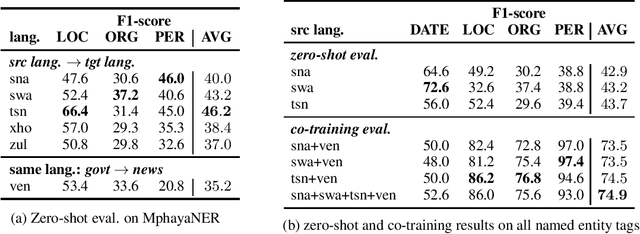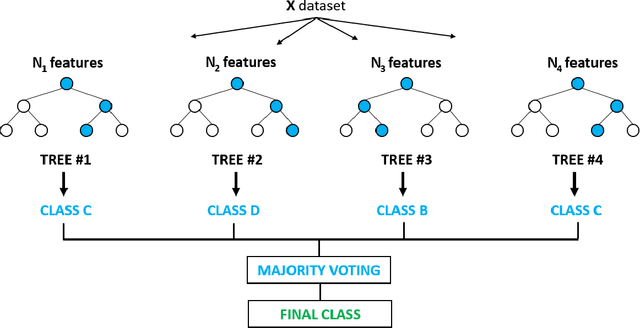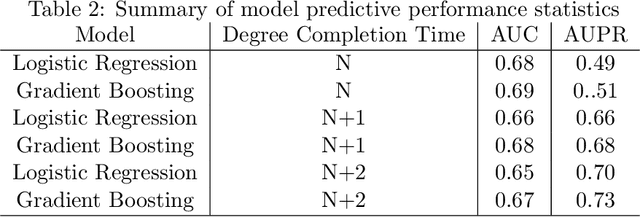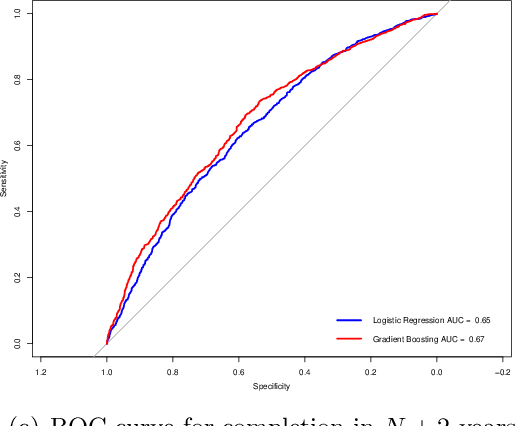Aluwani Mauda
MphayaNER: Named Entity Recognition for Tshivenda
Apr 08, 2023

Abstract:Named Entity Recognition (NER) plays a vital role in various Natural Language Processing tasks such as information retrieval, text classification, and question answering. However, NER can be challenging, especially in low-resource languages with limited annotated datasets and tools. This paper adds to the effort of addressing these challenges by introducing MphayaNER, the first Tshivenda NER corpus in the news domain. We establish NER baselines by \textit{fine-tuning} state-of-the-art models on MphayaNER. The study also explores zero-shot transfer between Tshivenda and other related Bantu languages, with chiShona and Kiswahili showing the best results. Augmenting MphayaNER with chiShona data was also found to improve model performance significantly. Both MphayaNER and the baseline models are made publicly available.
Predicting Higher Education Throughput in South Africa Using a Tree-Based Ensemble Technique
Jun 12, 2021



Abstract:We use gradient boosting machines and logistic regression to predict academic throughput at a South African university. The results highlight the significant influence of socio-economic factors and field of study as predictors of throughput. We further find that socio-economic factors become less of a predictor relative to the field of study as the time to completion increases. We provide recommendations on interventions to counteract the identified effects, which include academic, psychosocial and financial support.
 Add to Chrome
Add to Chrome Add to Firefox
Add to Firefox Add to Edge
Add to Edge